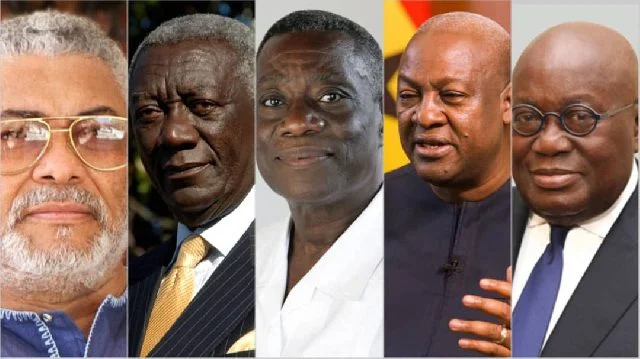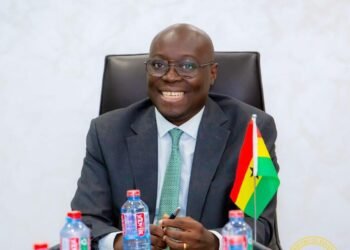As Ghana and other democracies around the world continue to refine their political systems, the concept of non-consecutive presidential terms is gaining renewed attention.
While most democracies allow leaders to serve two consecutive terms, a growing body of political thought now argues that separating these terms could lead to better governance, stronger institutions, and improved democratic accountability.
One of the most prominent voices in this debate is constitutional scholar Prof. Stephen Kwaku Asare.
He argued that although many democracies opt for consecutive presidential terms under the belief that continuity ensures stability, that assumption does not always hold up under closer scrutiny.
Instead, he asserted that breaking up presidential terms could inject more vitality and accountability into the political system.
“…when examined through the lens of institutional performance, political accountability, and democratic health, non-consecutive terms may offer a superior governance model.”
Prof. Stephen Kwaku Asare
This view challenges the widely held preference for unbroken leadership spans, suggesting that leaders who return to office after a break are more likely to be responsive, innovative, and attuned to the electorate.
In his detailed critique, Prof. Asare outlined a range of issues that often arise during consecutive presidential terms—starting with what he describes as “institutional fatigue.”

Continuous leadership, he explained, breeds stagnation within the civil service and political appointments. Over time, bureaucrats become entrenched, resistant to reform, and less willing to embrace new ideas.
He further noted what is commonly referred to as the “lame duck syndrome.” Presidents in their second and final consecutive term, Prof. Asare said, often feel less accountable to the public since they are no longer seeking re-election.
As a result, “their incentive to be responsive, accountable, or policy-driven significantly diminishes.”
Second Presidential Terms Weaken Governance
Furthermore, Prof. Stephen Asare highlighted a significant issue: the steady drop in public engagement during a president’s second consecutive term.
He explained that as leaders return for another term, public excitement often fades—especially when initial campaign promises remain unfulfilled. This, he warned, “can lead to apathy, disillusionment, and loss of legitimacy.”
Corruption and scandals also become more pronounced during second terms. Prof. Asare pointed out that without the pressure of another election cycle, oversight mechanisms often weaken.
This, he said, increases the “risk of scandals and impunity,” as witnessed in numerous historical examples.

“Hubris and Authoritarian Drift; Continuous power encourages arrogance. Presidents may centralize authority, ignore dissent, and erode democratic checks and balances.”
Prof. Stephen Kwaku Asare
The challenge of succession is also exacerbated in consecutive-term systems. According to Prof. Asare, presidents who serve back-to-back terms rarely cultivate capable successors due to fears of internal competition.
This “succession suppression” undermines political party development and makes transitions more volatile.
Prof. Asare also criticized the tendency of second-term leaders to focus on their personal legacies. “The desire to secure a legacy may lead second-term presidents to pursue grand, often impractical projects that lack public buy-in or fiscal prudence.”
These legacy-driven projects, though well-intentioned, often drain national resources and produce little in return.
On the policy front, the second term is often marked by a lack of momentum. Prof. Asare observed that the most significant reforms happen in the first term when political capital is at its peak.
By the second term, many administrations suffer from “stagnant policy agendas,” as innovative energy fades and bureaucratic fatigue sets in.
Call For Rethink On Presidential Terms
Prof. Asare also pointed out that prolonged leadership by one individual frequently intensifies political polarization. As civil society groups and opposition forces rally in response, governance may become increasingly paralyzed.
He noted that this “opposition consolidation” often leads to legislative deadlock, institutional erosion, and deepening national divisions.
One of the most compelling arguments in favor of non-consecutive presidential terms, he said, is the opportunity it gives for reflection and reinvention.

Unlike continuous leadership, which rarely allows a pause for self-assessment, non-consecutive terms provide a “critical opportunity for reflection, reinvention, and reconnection with the electorate.”
According to him, leaders who return to power after a gap may come back with fresh ideas, renewed focus, and a deeper understanding of public needs.
“In a nutshell, the same arguments that support the periodic reshuffling of ministers—such as avoiding complacency, refreshing ideas, and enhancing accountability—also support non-consecutive presidential terms.”
Prof. Stephen Kwaku Asare
Still, he acknowledged that the idea remains a “contrarian theory” and questioned whether it will gain widespread traction in political discourse.
As democratic nations continue to grapple with the challenges of leadership and accountability, Prof. Asare’s insights offer a provocative rethink of long-held assumptions.
By exploring the potential benefits of non-consecutive presidential terms, he opens the door to discussions about how democracy can be re-engineered for deeper accountability and more effective governance.
READ ALSO: ECG Partners with NADMO to Restore Power After Heavy Rainfall




















